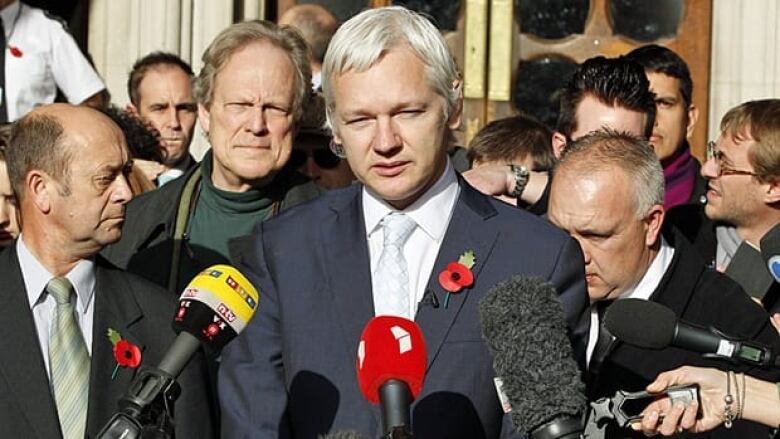WikiLeaks' Julian Assange loses extradition appeal

Time seems to be running out for Julian Assange, whose long battle to avoid extradition to Sweden over suspected rape and molestation cases appears likely to end in failure unless he can get Britain's highest court to hear an appeal.
In a major setback Wednesday in London's High Court, two British judges rejected Assange's move to block extradition to face questioning in Sweden. Court officials said Wednesday that Assange plans to try to take the case to Britain's Supreme Court.
"He has indicated that he plans to launch an appeal," a spokeswoman for the Judicial Office said on condition of anonymity because she wasn't authorized to give her name. It is possible his request for an appeal will be turned down, making extradition virtually inevitable.
Wednesday's ruling is the latest reversal for Assange, whose secret-spilling organization is on the brink of financial ruin. The group has suspended publishing the sensitive government documents that drew the ire of governments worldwide because of money woes.
Assange has denied any wrongdoing in the alleged rape of one woman and the molestation of another in Stockholm last year. He and his followers have maintained the sex crimes investigation is politically motivated by those opposed to WikiLeaks.
He has deeply polarized public opinion, appearing on Europe's Most Wanted List while winning praise in some quarters as a brave advocate for freedom of speech and for challenging government power.
Assange did not seem angry or visibly upset outside London's High Court.
"We will be considering our next steps in the days ahead," he told reporters and supporters.
Limited options
But experts said his legal options are now extremely limited.
"I think it's highly likely that he'll be in Sweden before the end of the year," said Julian Knowles, an extradition lawyer not involved in the case.
Vaughan Smith, the owner of the country mansion where Assange is living out on bail, said his friend's prospects appeared bleak. "It's not good news," he said.
Smith said Assange is concerned about the impact on his organization if he is sent to Sweden, fearing he would likely be held in prison as he contests the allegations against him.
"How can you run WikiLeaks from a jail? You can't," Smith said. "There is a pretty good reason for him not wanting to go to Sweden."
Two weeks to decide
Assange has 14 days to decide whether to apply to the High Court, and then must try to persuade judges that there is a point of law to justify an appeal to Britain's Supreme Court.
The ruling means Assange will remain in Britain for at least several more weeks, and could potentially extend his fight against extradition into next year. Assange remains on bail, held under virtual house arrest at Smith's rambling country estate in southern England.
It's also not clear whether Assange has the money for a continued legal battle. In a recent dispute over his autobiography, a draft of which was published without his permission,the WikiLeaks founder revealed that he'd fallen out with his previous lawyers over the size of his bill and didn't have enough cash to sue his publishers.












_(720p).jpg)


 OFFICIAL HD MUSIC VIDEO.jpg)
.jpg)



























































































